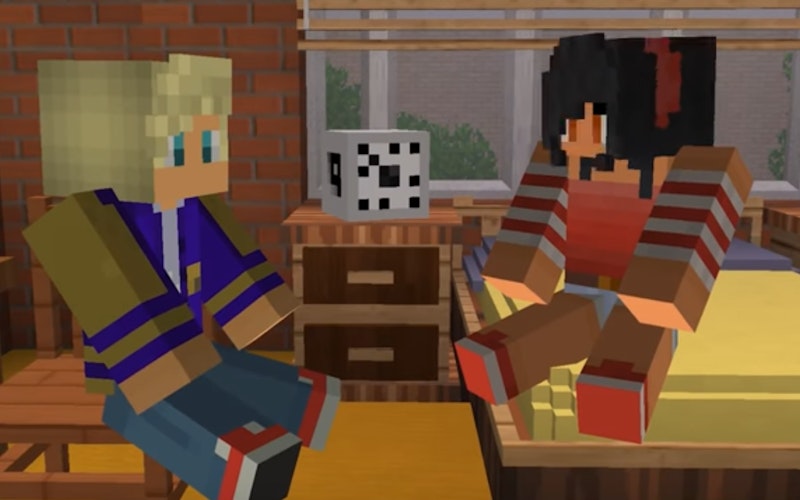
Online
YouTube, My Daughters, and Me
My daughter’s favorite television show is not a television show. It’s a YouTube series, “animated” in Minecraft, and created by an online star named Aphmau. I have mixed feelings about her watching it, not because it’s inappropriate, but because, well, it’s YouTube.
Look: I’m an English-majoring, creative-writing, British-television-loving snob. Why anyone would watch amateurs making short-form soap operas when there is a millennium of professionally edited content out there (Jane Austen, Citizen Kane, Mork & Mindy) is beyond me.
And yet, watching my daughter squeal over twentysomethings who have taught themselves video production inspires me. “Your young men will see visions,” the prophet Joel tells us. No, he wasn’t talking about YouTube, but still, a generation sidestepping the gatekeepers of creativity feels empowering. YouTube contains a lot of vapid vanity (as well as parodies of it), but it has also democratized the ability to make and share art.
Granted, the production values aren’t in the same universe as Stranger Things. But sometimes low production values—and accessible stars—remind you that people make these shows. People who sat at average computers, shoulder to shoulder with friends, learning skills such as voice acting and video editing on the fly. People not all that removed from the age, skill level, and enthusiasm of my daughter.
The professionalization of art feels so natural now that it’s easy to forget it’s a blip on the screen of humankind. Before the creation of the first record, the only music most people heard was the music they made themselves. Reading Little House on the Prairie with my daughters last summer, we all basked in the warmth of Pa’s fireside fiddling. Yet as a poor, rural pioneer, Pa probably had little formal training. His musicianship, honed over decades, was probably good, but not at a “professional” level.
Yet his excellence was mostly beside the point. His real genius was striking sparks of light in everyday darkness and inspiring his family to make music together. In some ways, I think YouTube captures that ordinary creativity better than peak TV. The promise of YouTube, and also the reason it can be so disheartening, is that it allows anyone to gain an audience.
YouTube has democratized the ability to make and share art.
To wit: rather than my daughters being passive consumers of shows far beyond their ability to imitate, they’re inspired by less-polished offerings to make stuff. My youngest daughter watches slime videos, then heads to a lab of gooey concoctions in our garage. Aphmau’s show inspires my oldest to draw reams of fan art for “stars” who seem more like peers than constellations. And both of them obsess over repainting and outfitting secondhand Monster High dolls after following a YouTuber who turns plastic toys into bespoke artworks.
Watching TV as a kid, it never occurred to me that real people made it. Shows seemed like trees or flowers—fully formed and sui generis. I didn’t wonder how I could imitate them. One doesn’t mimic a tree; one plays around its base.
When we sneer at YouTube’s low bar for creativity, I think we lose sight of how generously God allows us to participate in creation. Yes, God’s work is so far beyond ours it’s not even funny. Compared to God’s manifold works, everything we make is drivel. And yet God is no snob. Remember that Jesus worked as a carpenter with human tools.
Don’t get me wrong: there is a lot to worry about with a generation raised on personal brands, ubiquitous sharing, and the dull disconnection of knowing people only through screens. And yet standing in judgment of my daughters’ favorite shows feels like a missed opportunity to know them. It also feels like turning away from a medium that celebrates the sprawling creativity that God planted in every person’s heart.
Knee-jerk contempt for YouTube prevents us from noticing its invitation. It keeps us safe from risky experimentation and nerdy joy. And it builds an artificial wall that tells us we need abundant talent and official permission to do anything worthwhile. At its best, YouTube reminds me of an astonishing fact: God made every last one of us creative beings, called to humble acts of art.
Topics: Online